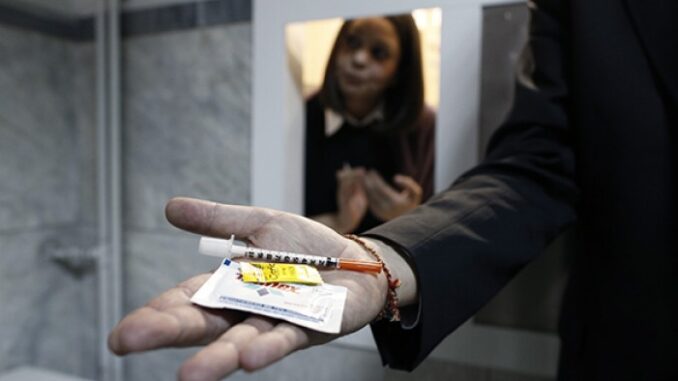
 All addictions are harmful, physically and mentally, for addicts. Every aspect of the addict’s life is negatively impacted, from relationships to jobs. It is not always possible to completely quit an addiction when going into rehabilitation and recovery, so minimizing the harm reduction impacting the addict and those around him or her is a good step to take.
All addictions are harmful, physically and mentally, for addicts. Every aspect of the addict’s life is negatively impacted, from relationships to jobs. It is not always possible to completely quit an addiction when going into rehabilitation and recovery, so minimizing the harm reduction impacting the addict and those around him or her is a good step to take.
Physical Harm
The longer one has had a substance addiction, the more risk there is to cut it out completely (going cold turkey). Reducing the intake in stages will minimize this risk. A rehabilitation program will be able to give the best advice on how this can be achieved; seeking professional help is essential.
The body adjusts to reducing quantities by reacting physically when quitting drugs or alcohol. It is often painful but is a sign of a return to health, not an exacerbation of addiction. It is extremely dangerous to take the amount of a drug or quantity of alcohol that had previously taken at the point of entering rehabilitation. It is one of the most common causes of death amongst addicts. Awareness of this is key to minimizing the risk.
Sharing tools of drug use drastically increases the risk of communicable diseases such as hepatitis. Do not share needles, tubes, or other tools of use. For sex addiction, it is vital for one to use condoms and dental dams at all times.
Withdrawal from alcohol or drugs carries related health issues such as headaches, insomnia, agitation and irritability, and nausea. Eating well and keeping hydrated will help combat these symptoms. Exercise will help to tire you and address insomnia. Getting into a routine gives a person focus and structure. Some may experience stronger symptoms such as delirium and hallucinations. These are serious, and medical help must be sought if you experience any of these.
Mental Harm
Addiction will also cause mental health problems, from depression to more serious psychological conditions. Counseling, therapy, maintaining dialogue with a rehabilitation facilitator, and openness with those in your life will help create understanding and support during recovery. There will be people who will judge, and addicts will receive negative reactions. An awareness of this possibility will help to develop strategies for coping with negativity. Know that entering recovery and working towards rehabilitation is a positive step. For more serious mental health issues, medical help is essential.
Addiction damages all relationships; family, friends, colleagues, and acquaintances will all have suffered. Building bridges through rehabilitation will help. Communication is keyto minimizing the risk posed by addiction. Accepting responsibility for the problems is vital.
The addictive personality may swap drugs for gambling or alcohol for food and develop a different addiction. Vigilance over what you are doing will empower you in the recovery process. Keeping a diary noting what you eat, drink, and your actions throughout each day will help maintain focus. It is also useful to show how far you’ve come in the rehabilitative process; the process is difficult, and an awareness of how well you’re doing maintains the necessary positive attitude. Distraction techniques can be especially useful for behavioral addictions such as sex addictions.
Leave a Reply